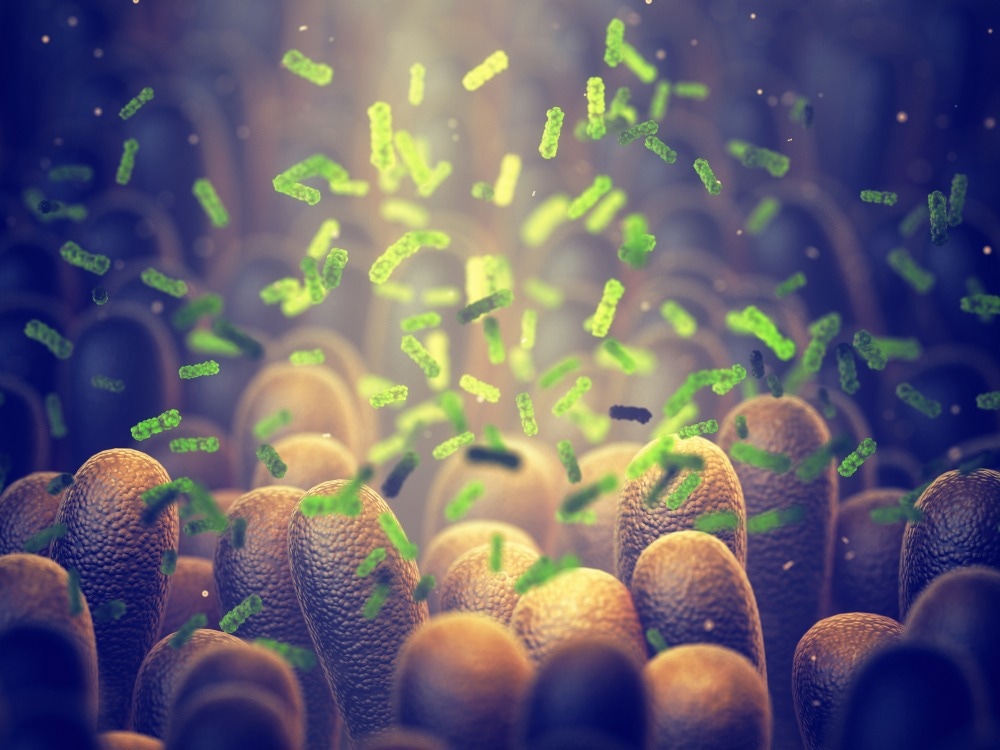Reviewed by Danielle Ellis, B.Sc.Sep 9 2022
Researchers have been paying special attention to the microbiome’s involvement in the intestine and overall health for a long time. According to a recent viewpoint piece in Science by a UT Southwestern researcher, there is growing evidence that the microbes found in the human stomach might also affect a person’s neurological and emotional health.
 Jane Foster, PhD, Professor of Psychiatry. Image Credit: UT Southwestern Medical Center.
Jane Foster, PhD, Professor of Psychiatry. Image Credit: UT Southwestern Medical Center.
Leading microbiome expert and neuroscientist Jane Foster, Ph.D., explains how researchers are figuring out how the microbiome interacts with the brain and how it may be linked to conditions like depression and amyotrophic lateral sclerosis (ALS).
Animal research has identified certain microorganisms and related compounds that promote anxiety-like behavior and brain function, according to Dr. Foster, who was the first to correlate microbes in the stomachs of mice to anxiety. Novel therapies to enhance symptoms and clinical outcomes might result from translating these findings to clinical populations.
To establish a link between an individual’s 39 trillion gut microorganisms and their predisposition for brain disease, Dr. Foster joined UT Southwestern and its Center for Depression Research and Clinical Care (CDRC) in May. She was a Professor at McMaster University in Ontario and co-molecular lead of The Canadian Biomarker Integration Network in Depression (CAN-BIND).
People who are at risk for depression or diagnosed with depression are heterogeneous. So we want to use biology to understand the biomarkers that can help define the different clusters of people.”
Jane Foster, Neuroscientist and Professor, Psychiatry, UT Southwestern Medical Center
Dr. Foster claimed that what drew her to the center was UT Southwestern’s strategy, which is based on the idea that clinical care and research go hand in hand.
Dr. Foster adds, “That holistic approach is necessary if we are going to find better answers for people suffering with mental illness.”

Image Credit: nobeastsofierce/Shutterstock.com
To learn more about the factors that contribute to depression, find novel therapies, and enhance current ones, the CDRC carries out research on unipolar and bipolar depression.
I am very pleased that we were able to recruit Dr. Foster to join our center, given our continuing goal to investigate the biosignature of mental health through a multipronged approach.”
Madhukar H. Trivedi MD, Professor and Director, Psychiatry, Center for Depression Research and Clinical Care, UT Southwestern Medical Center
Drs Foster and Trivedi have previously worked together to examine immunological markers in feces samples taken from patients in the long-term Texas Resilience Against Depression research, as well as blood samples received through CAN-BIND to determine how inflammation may affect depression.
A patient may benefit from personalized medicine if a sample from a depressed patient reveals specific microorganisms linked to the effectiveness of particular antidepressants or therapy.
Currently we have a host of treatment choices, yet decisions are predominantly based on behavior and self-report, and imaging and EEGs in some cases. Antidepressants typically work for just around 40% of people. Other choices include cognitive behavioral therapy, deep brain stimulation, or even exercise and diet. By expanding on the individual patient’s profile, can we now improve the number of people that respond to a particular treatment?”
Jane Foster, Neuroscientist and Professor, Psychiatry, UT Southwestern Medical Center
Source:
Journal reference:
Foster, J. A. (2022) Modulating brain function with microbiota. Science. doi.org/10.1126/science.abo4220